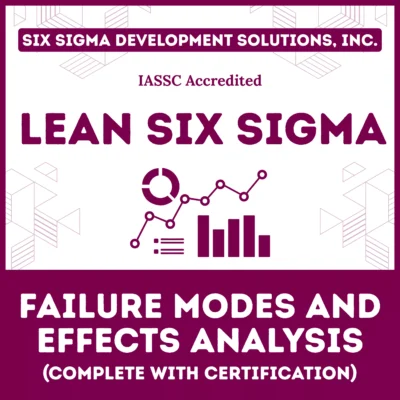Table of contents
Lean Six Sigma Master Black Belt Salaries
A Lean Six Sigma Master Black Belt certification is a great way to achieve excellence for yourself, your company, and the society at large. You can increase your salary by obtaining a certificate that demonstrates your Six Sigma knowledge. According to a salary survey conducted by ASQ, the Lean Six Sigma Master Black Belt Salary amounts to $106K annually. Their non-certified counterparts made $94K, a difference of over $12K a year. Lean Six Sigma Black Belt Certification has become a valuable asset on the job market as more companies adopt this management philosophy.
Simplilearn offers specialized courses that don’t require coding. Learn to master in-demand skills and unleash your creativity in order to make an impact in the digital world.

What is the Lean Six Sigma Master Black Belt Certification?
Similar to martial arts belt rankings, you’ll see different belt rankings when you explore different options for Six Sigma certification. The following is the order of ranking: white, black, green, and yellow.
The black belt represents the highest level of expertise. Six Sigma Black Belt Certification is a testament to the abilities of project managers, team leaders, software professionals, and quality assurance engineers. It also demonstrates to other management professionals that they are capable.
Certified Six Sigma Black Belt professionals are able to explain Six Sigma concepts and philosophies as well as supporting tools and systems. They are able to demonstrate team leadership and understand the dynamics of a team.
These change agents are able to implement best practices by implementing the DMAIC Model – Define Measure Analyze Improve and Control based on Six Sigma Principles.
Also Read: What is a Lean Six Sigma Master Black Belt?
Lean Six Sigma Master Black Belt: What you need to know
You can stand out in the industry by possessing these skills:
- Communication that is clear and effective
- The ability to communicate in both the language of C-level executives and those on the shop floor.
- Understanding of all DMAIC aspects
- Lean Enterprise Concepts
- Expertise in data collection and process mapping techniques
- Ability to work in teams and understand team dynamics
- Influencing skills
- Motivator of others
- Analytical Skills
- Results-oriented approach
An LSSBB certificate and the skills mentioned above can lead to many exciting career opportunities, including:
- Quality Systems Manager
- Quality Engineer
- Quality Supervisor
- Quality Analyst
- Quality Auditor
- Process Engineer
- Continuous Improvement Manager

The Average Lean Six Sigma Master Black Belt Salaries Based on Job Titles
Individuals who hold Lean Six Sigma Master Black Belt certifications earn an average salary of $20,678 more per year than their counterparts without this credential. Their average salaries can vary based on not only company and location but also job title.
Six Sigma Black Belt certification can benefit work performance at many levels within an organization, but senior roles tend to earn more and may be eligible for generous bonuses and profit-sharing amounts. Here are 10 common positions Six Sigma Black Belt participants can pursue and their average salaries.
1. Process Engineer
National average salary: $88,636 per year
Primary duties: Process engineers establish and design procedures and processes that have the optimal use of materials, machines, employees, energy, and information. They may collect and analyze data to reveal opportunities for process improvement. While they often work in manufacturing fields, process engineers also can find employment in the biotechnology, pharmaceutical and oil, petroleum, and energy fields.
2. Director of operations
National average salary: $94,245 per year
Primary duties: A director of operations oversees teams and works with senior management to meet company goals and optimize operational efficiency. This role often includes budgets, purchases, negotiations, and long-term plans. These individuals typically aim to optimize the employee experience by implementing worthwhile recruiting, hiring, and training practices.
3. Quality manager
National average salary: $91,540 per year
Primary duties: A quality manager monitors and evaluates internal or manufacturing processes and procedures. These individuals typically implement strategies to ensure an organization’s processes are safe, secure, and compliant with relevant regulations. They perform regular quality audits, help employees understand safety and quality measures, and compile reports about outcomes.
4. Senior project manager
National average salary: $111,361 per year
Primary duties: A senior project manager guides teams through a project, coordinating with various departments, clients, and partners. These individuals ensure the successful outcome of a project by overseeing deadlines, project progression, budgets, and risk management. Senior project managers typically have more experience and authority than other project managers, and they may handle more complex projects with larger budgets and teams.
5. Quality assurance director
National average salary: $121,046 per year
Primary duties: A quality assurance (QA) director oversees a team to ensure consistency and compliance with standards within an organization. They work with other department leaders and plan, develop, and direct QA initiatives that meet the standards of the business along with any government regulations. They may gather statistical data and present it to management to promote transparency and share strategies for improvement.
6. Head of Finance
National average salary: $155,831 per year
Primary duties: A head of finance oversees the financial activities of a company or organization. They may manage budgets, review risk management, forecast revenue and expense results, and seek cost savings or process improvements that help profits.
These senior leaders typically work with other executives and stakeholders to brainstorm and implement financial strategies. Their goal is to increase the value of the company by increasing revenue, improving business visibility, and optimizing cash flow management and day-to-day operational expenses.
7. Continuous improvement manager
National average salary: $97,515 per year
Primary duties: Continuous improvement managers aim to improve a company’s process by creating, measuring, and testing efficiency plans. They evaluate, analyze, and measure throughout all stages of a project or process. These individuals may review processes and products throughout an organization, making suggestions to optimize methods and strengthen outcomes.
8. Vice president of operations
National average salary: $139,608 per year
Primary duties: Vice presidents of operations plan, execute, and direct a company’s operations, aiming to optimize staffing, technology infrastructure, and spending. They often seek cost-effective and continuous improvement processes that meet the current needs of a company while considering future needs. These individuals may also hire, supervise, and coach more junior operations individuals like operations coordinators and operations managers.
9. Vice president of human resources
National average salary: $144,588 per year
Primary duties: A vice president of human resources oversees the recruitment, hiring, development, and retention of employees. These individuals develop and oversee legally compliant practices and policies for an organization’s employees. Vice presidents of human resources may be responsible for employee and labor relations, compensation plans, retention initiatives, leaves of absence, time off programs, and equal opportunity guidelines.
10. Chief Technology Officer
National average salary: $174,006 per year
Primary duties: A chief technology officer (CTO) oversees the information technology (IT) at a company. They set organization-wide strategies that seek to maximize efficiencies by leveraging technology. They adopt new technologies to improve workflows and innovate business processes.
Additionally, they may make decisions about equipment, review infrastructure and make suggestions for improvement, supervise IT personnel, and implement new technology to assist with individual projects. These individuals might also implement security measures to protect internal data and specialize in cybersecurity.
Are you interested in becoming a Master Black Belt?
Leave a comment down below. We can help you get there!




















good stuff